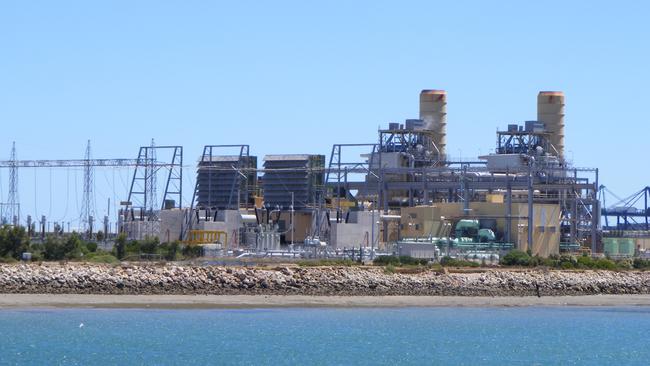Australian Energy Regulator claims win in Pelican Point power failure case
The AER is promising to clamp down on market disclosure breaches after scoring a partial legal win over the French owners of a gas-fired generator in Adelaide.

The Australian Energy Regulator says it’s “pleased” with a Federal Court judgement that found the owners of the Pelican Point gas-fired generator in Adelaide’s north failed to inform the market operator of the full capacity of the plant during a heat wave in 2017.
During a four-year legal battle, the AER had argued that for several months before rolling blackouts took place on February 8, 2017, Pelican Point failed to disclose that one of its generation units was capable of being made available on 24 hours’ notice.
While ruling ENGIE did not breach those obligations, Justice Anthony Besanko did find the company breached national electricity rules by failing to disclose short-term availability information to the Australian Energy Market Operator in the days leading up to the blackouts.
AER chair Clare Savage said she was pleased with the Federal Court’s decision on Wednesday, saying it reinforced the “critical importance of generators providing timely and accurate information to the market operator”.
“Generators must provide complete, accurate and up-to-date information to AEMO so it can manage the power system and ensure safe and reliable power supply to consumers. Failure to do so can unnecessarily risk power system security and contribute to major market events,” she said.
“It remains one of our compliance and enforcement priorities to support power system security by focusing on generators’ compliance with obligations concerning offers, bids and capability
information.
“We will continue to monitor the market, investigate conduct by generators that contributes to these events and take enforcement action where warranted.”
On February 8, 2017, South Australia experienced heat wave conditions that resulted in high customer demand and reduced generation capacity. AEMO ordered load shedding that affected 90,000 customers.
In his decision, Justice Besanko found that the central issue in the case involving Pelican Point’s disclosure requirements was the availability of gas transport to deliver gas to the power station.
“By early February 2017, it ought to have been clear to PPPL (Pelican Point Power Ltd) that it could reasonably expect to obtain sufficient gas transport to operate GT11 and GT12 (gas turbines) on 8 February 2017,” he said in the judgement.
“It is difficult to fix the precise point in time at which PPPL ought to have had the reasonable expectation that gas and gas transport would be available such that PPPL’s ST PASA (short-term projected assessment of system adequacy) availability rose to 320MW and any doubt in a case involving civil penalty provisions should be resolved in favour of PPPL.”
A separate hearing on penalties will be held at a later date.
Pelican Point is operated by ENGIE, which owns 72 per cent of the power station. Japan’s Mitsui owns the remaining 28 per cent.





To join the conversation, please log in. Don't have an account? Register
Join the conversation, you are commenting as Logout